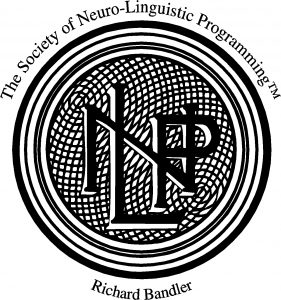NLP FAQ: Unlocking the Power of Your Mind


*Picture taken with Mr John La Valle, NLP Master Teacher in the Bandler Team
Welcome to our NLP Frequently Asked Questions section, where we shed light on the fascinating world of Neuro-Linguistic Programming. NLP is a profound study of the structure of “subjective” experience and what can be calculated from it. Let’s dive into some common questions about NLP and how it can positively transform your life.
What is NLP?
Neuro-Linguistic Programming is “The Study of the Structure of “Subjective” Experience and what can be calculated from it.”
It shifts your mind and dysfunctional values, beliefs, thoughts and emotional patterns to desirable ones without medicines and surgeries, via working through your neurology and brain.
The Practitioner listens to you, observes you, analyses your strategies and logical patterns and detects if there are any dysfunctions or limiting beliefs, or if something is missing in the process. She discusses with you what you want and then works out a successful sequence and strategy for you to obtain your wishes and dreams.
Once they are put together in the proper sequence, they will change your internal representations positively. This set of strategies is called a technique, which when used, would change your behaviour to a more desirable one.
The models that constitute NLP are all formal models based on mathematical, logical principles such as predicate calculus and the mathematical equations underlying holography. What we have done is simplified these so you don’t have to know about the mathematical equations or holography because trained practitioner knows how to employ these to make a shift.
How are the NLP building blocks used to observe experts?
NLP has a wide variety of building blocks such as calibration techniques, patterns in the language someone uses, predicates and Meta Model™, eye movements and Submodalities, and other analytical models such as Logical levels, Meta-programs, perceptual positions, timeframes, etc.
They were discovered by observing experts. They were developed in order to further evolve human consciousness to the point that people could replicate skills and have deliberate control over their own consciousness.
Meta Programs describe how people sort through multiple generalizations. As such, they will tell you what lies inside and what lies outside of someone’s generalizations about things like doors, for example.
When someone says, “Stupid door!”, that gives you a pretty good idea about what lies outside their generalizations about what doors “are”. If you then ask them how they know the door is “stupid”, they’ll give you an answer that will identify their “sorting style”, i.e., “There’s no knob,” meaning that it can only be a not-stupid-door if it has a knob. If what they want is to be able to open more kinds of doors, then you have to teach them to sort for things other than just a knob in order to identify a door. That’s how Meta-Programs work. They don’t just explain what the person is doing. They give you something to do. In this sense, NLP is educational and also widens up your views on options and possibilities in life.
What are typical NLP applications?
Collapsing Anchors, Visual Squash, V/K dissociation, Change Personal History, Belief Change, and Reimprint (all of which are sometimes called NLP), are some of the techniques that were derived from applying the models. All these models and techniques can be used in transforming your mind, belief system, emotional patterns and behaviours.
Isn’t NLP mainly used for therapy and that’s where the procedures came from?
NLP never calls anything a “procedure”, but rather techniques or exercises. It’s important to emphasize that NLP is an educational tool, not limited to a form of therapy.
+ What about enhancing creativity?
By receiving an NLP session, the degree of creative output that you have in your daily life will be greatly improved. Once new behavioural strategies are created, you will understand how NLP can be used as a creative tool and applied to any scenario in which you deem suitable.
The basic NLP Presuppositions are:
The NLP Presuppositions are the basic assumptions of the technology that have not yet proven to be false.
What are the roots of NLP?
Dr Richard Bandler created NLP with John Grinder (linguistics), and Richard has a versatile psychology and psychoanalysis background as well as a Mathematics. NLP applied what was learned from various earlier works and developed models that are the foundation of NLP.